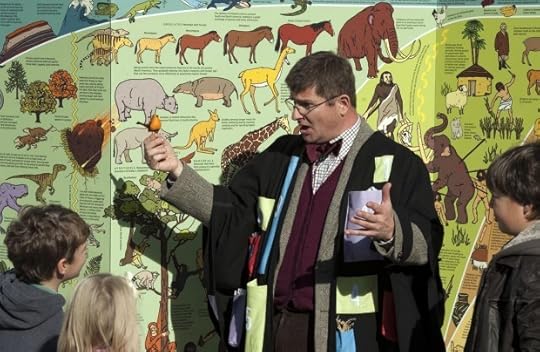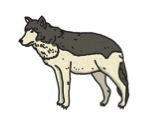Christopher Lloyd's Blog, page 3
November 27, 2012
Turning Japanese
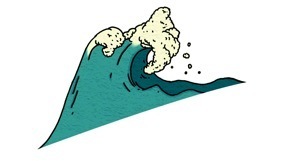
I really think so – do-ba-de-do-do-do-dooo…. Depending on your age, you may or may not remember The Vapours but their irritatingly catchy hit song, which reached No 3 in the UK charts in 1980, now keeps ricocheting through my jet-lagged mind. My plane landed at Narita airport in Tokyo about 6 hours ago.
This is only the second time I have been to Japan. The first was more than 20 years ago as a correspondent for The Sunday Times. What I remember most from that trip was thinking I might see some of countryside while taking the Bullet Train from Osaka to Tokyo (a 3 hour ride) but to my amazement the train never seemed to leave the city. Japan is a built up place – at about half the area of the United Kingdom it contains more than twice as many people.
I am back because an updated edition of my first book What on Earth Happened? has recently been translated into Japanese and was published less than 8 weeks ago. It has since become something of a hit. I have been invited, therefore, for a week, by the Japanese publishers, Bungeishunju, for a mixture of newspaper and TV interviews, lunches, lectures and dinners.
The highlight will come on Thursday when I travel to Fukushima – to see for myself what on earth has happened in the region since the strike of that catastrophic tsunami, earthquake and nuclear disaster of March 11th 2011.
I am full of curiosity to learn about how the people of these islands now view their relationship with the natural world and in particular their thoughts on the future of energy supplies.
Without oil our Western way of life very quickly slips back into the Middle Ages. In Japan, the answer was – until early last year – an unequivocal dependence on nuclear energy. But nuclear is no panacea. Global uranium supplies are running out, nuclear power is still fundamentally uneconomic (if you include the costs of decommissioning) and now – as the Japanese have found to their horror – at least in seismically active regions such as Japan, nuclear power generation can only be described as impossible to make fully safe.
Without oil our Western way of life very quickly slips back into the Middle Ages.
Almost all of Japan’s nuclear reactors are now out of action pending a government review. Public opinion is so anti-nuclear, post tsunami, that advocating business as usual with regards to nuclear power is political suicide. As a result, oil and gas is being shipped in from abroad to make up the difference and household energy bills are now increasing by 20%, business rates by up to 40%.
Elections are due on December 16th. One of the biggest issues at stake is whether or not to phase out nuclear power altogether. It seems from opinion polls that most people now want to be rid of the nuclear menace forever (the end of WW II is still a living nightmare for many). Amongst young people there is a particularly strong and overwhelming sense of NO to nuclear – at least that is what I am told. I shall see this week.
But amidst all the gloom, to my mind Japan is staring at what may be the greatest opportunity it has had in more than a generation – perhaps the best chance of a come back since her leaders caved into Commodore Perry’s Black Ships in 1858. No other nation on earth has the engineering genius of Japan – or the manufacturing capability – or the track record in exporting to the rest of the world.
While the United States seems unable to rise to the challenge of constructing a low-carbon economy (mostly for ideological reasons), Europe – although less ideologically torn – is handcuffed by the demise of its single currency.
What better place to lead the way towards a low-carbon economic future than Japan? Economically, the country is desperate for a ‘new deal’ to lift itself out of the quagmire of economic depression while emotionally its people are still reeling from asking themselves the question What on Earth Happened? after nature thrust herself so brutally on these geologically unstable islands a little less than 2 years ago.
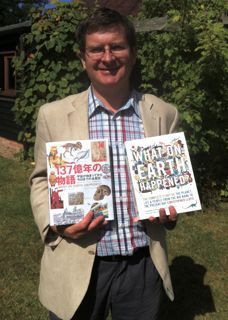
The author with the updated English and new best-selling Japanse edition of What on Earth Happened?
September 19, 2012
To be free or not to be free – is that the question?
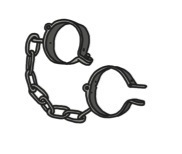 I JUST SAW the latest effort at converting Tolstoy’s great classic novel Anna Karenina into a movie. I’m not a great Keira Knightley fan (or Keira Nighty as they call her on Capital Radio) but she did a decent job as Anna, I thought. The film was a bit bizarre – any expectations of a visual feast of 19th century Imperial Russia are dashed by the fact that the film is set almost entirely inside a theatre – with the odd moment of escape.
I JUST SAW the latest effort at converting Tolstoy’s great classic novel Anna Karenina into a movie. I’m not a great Keira Knightley fan (or Keira Nighty as they call her on Capital Radio) but she did a decent job as Anna, I thought. The film was a bit bizarre – any expectations of a visual feast of 19th century Imperial Russia are dashed by the fact that the film is set almost entirely inside a theatre – with the odd moment of escape.
It’s a powerful adaptation, though, thanks to the great script by Tom Stoppard which makes the most of the many themes in the book from the grotesquely unequal position of women in Imperial Russia (their extra-marital affairs are against the law, while men are expected to have affairs) to the enigmatic personality of Karenin – played almost is if he were a saint - by Jude Law.
But what struck me most was something I had missed in the book. It came back to me today after speaking at a lovely school in a deprived area of beautiful Pembrokeshire, in Wales. The question is this; Is slavery always worse than freedom? Or is the free world – something we generally take for granted as being a good thing – sometimes more cruel and damaging than having that freedom forcibly taken away?
Tolstoy poses the question towards the end his story when Levin, the idealist farmer, is talking on a hay bale to his chief worker who bemoans having to earn a living. Emancipation wasn’t something he or his family had asked for, he explained – rather it was imposed on them by liberals like Levin. The worker’s father never had to worry about finding a job, earning enough money or putting food on the table. All that came as part of the relationship between serf and master – it was not a free life, but at least there was no such thing as unemployment!
The teacher I spoke to today told me – and she is right I am sure – that many people in this part of South Wales have not had jobs for a generation or more – since the collieries disappeared. This has led to such a cycle of poverty that the parents of many of the children in the school do not get up in the morning before their children – I guess they have no need to, they have no job to go to – and in the process they have lost any sense of what it means to be valued by society.
This has led to such a cycle of poverty that the parents of many of the children in the school do not get up in the morning before their children
It is therefore up to the school to provide the children with breakfast, and to make sure their teeth get brushed in the morning.
I guess it is inevitable that the tragedy of longterm unemployment can only really be felt in a community that has lived with it for years – I don’t think for a minute that politicians or Prime Ministers in Westminster can genuinely empathise with what it must be like. Nor do they truly realise the appalling consequences that play out over time and that the real victims are the innocent young children – whose parents have little or no aspirations – not for themselves or their offspring.
So I just wonder. Perhaps Levin’s chief worker is right. Maybe some kind of forced employment – rather than blanket state handouts – would be better than the freedom to do nothing.
At least it would give the parents of those kids I spoke to today a need to get up in the morning before their offspring go to school. If these wonderful kids – still young enough to have natural, curious, supple, eager minds – grow up thinking that it is adult not to get up in the morning, then what hope is there for them – or their children – ad infinitum into the future?
August 1, 2012
The Number Devil
 WHILST PUTTING the final touches to a new Indian edition of the What on Earth? Wallbook - due out next year – I happened to come across a remarkable seventh century Indian sage called Brahmagupta. He is the supposed inventor of the numbers 1-9 and the first person to use 0 to denote a place value - a truly magic bullet that has transformed the practice of arithmetic.
WHILST PUTTING the final touches to a new Indian edition of the What on Earth? Wallbook - due out next year – I happened to come across a remarkable seventh century Indian sage called Brahmagupta. He is the supposed inventor of the numbers 1-9 and the first person to use 0 to denote a place value - a truly magic bullet that has transformed the practice of arithmetic.
Numbers have genuinely changed the world – spreading via the Islamic House of Wisdom in ninth century Baghdad, then to Italy via Leonardo of Pisa (better known as Fibonacci) in the early thirteenth century and finally across the globe with the inexorable rise of Western science.
Our modern lives are now utterly ruled by these 10 abstract symbols. Let’s zoom out for a moment and see how the big picture reveals the gargantuan impact of Brahmagupta’s ingenuity as his new-fangled numbers demonstrate their complete conquest over all three stages of human experience: global, local and personal.
1) Global – just think about what our world would be like without numbers. No computers, no GSM phones, no Internet – everything digital is instantly zapped into oblivion. Now remove all statistics, GDP, probability and betting. Of course there could be no stock and shares, in fact no modern capitalism. Barter and exchange - or at least a new Gold Standard - would replace credit cards, Internet banking and paper money.
In fact, it doesn’t take too much imagination to see how artificial civilization as we know it depends almost entirely on these numeric symbols for its very survival.
2) Local - My recent experience with trying to get a small bank loan to help fertilise the green shoots of our successful but embryonic What on Earth Publishing business has caused various scales to fall from my eyes. One is the realisation that having numbers rule our everyday lives is not always something to be cheery about.
Most people agree that today we are in the midst of the worst global economic downturn in living memory. The only genuine way out – so hindsight suggests – is for new entrepreneurial, start up businesses to generate products and services that consumers want and thereby help to restore growth.
To do that, of course, you normally need a bank – the vortices of our financial, number-crunching world. Banks make and destroy money out of thin air because today money is digits on a screen – not gold or silver (now just imagine how utterly magical our would seem to a medieval alchemist whose lifelong struggle was to turn lead into gold!).
Of course to build and grow a business you need start up capital – perhaps to build a product line or a channel to market. But, thanks to the appalling economic ruin presently engulfing us, banks are nowadays understandably highly risk averse. They require absolute confidence that any loans they make will be repaid.
So I fully expected that my local bank would demand my house as security for our small business loan. Fortunately, I have no mortgage or outstanding personal debts and the amount of the loan I sought was easily less than 10% of the value of my property…
Neil, the slightly rotund and seemingly amiable local branch manager of HSBC, assured me there would be no problem – he just had to run it through the system (an automated number-crunching, credit checking computer system) and then run it by the bank’s credit control team (who as a customer you never get to meet or talk to about your business).
Initially signs were extremely positive.
‘Yes!’ said Neil, “The system says we can lend you the money you want – probably without security!”
Hurrah!
Thinking that the loan was all but in the bag, I paid a large bill to my printers on time rather than make them wait several extra weeks for the loan to come through. What matter, I thought, because it only took our balance about £2,000 into the red, well within the limits of our agreed overdraft facility.
Bu then I did not hear from Neil for two weeks, which seemed strange. I chased him, asking for an update.
“Ahem – I’m afraid we’ve hit a problem,” he sheepishly explained. “Now the system says that since you are now financing your business on debt not revenues, it won’t allow me to lend you anything at all.”
So within a fortnight the bank had gone from offering us tens of thousands of pounds as a loan to refusing to lend us a penny.
I was dumbfounded.
“Are you telling me that if I had not paid my bills on time, you would have made me the loan. But now that I have you won’t?”
Neil apologised saying there was nothing he could do as he couldn’t ‘override the system’.
‘But you can have my house as security…..” By now I was blathering on in disbelief…. ‘But I have no personal debt, no mortgage, and the business has never exceeded its overdraft facility and we have a perfect record for paying its bills …. And you said we are a valued customer…. And the economy needs small growth business like us to revive….and the money will all feed into the local economy…… and.”
But there was no point.
The reality is that Neil has no actual function other than to relay what the system says. He is a charade. He says he loves our business, our books, our mission, our passion. But that’s totally irrelevant. If the computer says no, – then it’s no. End of story.
His final words to me were:
“We cannot not lend to you as your business is not mature enough, we want to see more evidence of income and growth before we will be in a position to lend you anything”.
And then I put down the phone because words are truly useless in the face of a world ruled by abstract numbers.
3) Personal - The personal consequences of a world ruled by number devils are just as horrific. Such simple symbols represent the ultimate abstractions, delicious fodder that appeals exclusively to the left side of our brains. Numbers delight our left-minded neurons because they are fragmented, controllable, solvable and right or wrong. It doesn’t matter that the world these symbols inhabit and construct is utterly illusory and totally divorced from natural reality, because, for the operating system represented by the left side of our brains, control and certainty, is, literally, all that counts.
So no surprises that our right-side emotional, personal, holistic, natural, visual, artistic, empathetic, spiritual selves is drowned out and crushed by the collective tyrannies of GDP, credit scoring, share prices, bank bonuses and interest rates. In fact so utterly is our species now ruled by abstract numeric symbols that, ironically, no body is in control at all! I guess the global financial crisis has an upside afterall by exposing the left-brain delusion – underpinned by a world of abstract numbers – so it is finally being laid bare for all to see. Witness how today’s economic forecasts are even worse than our weather forecasts! And as for a pension – forget it – they are a fictitious futuristic mirage!
Brahmagupta, you may have been a sage in your day – and, in the best Indian traditions, your ingenuity was utterly profound. But I am sorry to say that the unintended consequences of what you devised have earned you the hottest seat in my personal Divine Comedy. Located just alongside Neil from HSBC, right in the middle of the burning fiery furnace of hell, is an Indian guru, the number devil himself.
June 5, 2012
The Ancient Art of Memory

ONLY THREE SUBJECTS were taught in the schools of ancient Greece: geometry, gymnastics and rhetoric. The first two may seem obvious enough – for a fit mind, you need a fit body – or so they believed. But why rhetoric? How come the science of speaking in public was so important 2,500 years ago yet is completely neglected today?
The answer, in a word, is writing.
For Greek students, who had no access to pen and paper, success in their careers as a politician or barrister meant being able to speak in public without notes. Part of their rigorous schooling involved techniques such a mnemonics.
One of the main reasons we have such disregard for ancient wisdom, ironically, comes down to our obsession with literacy.
Think about it. If you want to remember what to buy in the shops, typically you will write a shopping list. But this simple, everyday act, sends a message to the brain that it no longer needs to remember what to buy at the shops – all it has to do is remember where the shopping list is.
Writing a list down is a permission slip for the brain to forget. It makes for lazy minds and idle memories. In modern business public speaking skills have been sacrificed on the altar of PowerPoint – the most lousy instrument ever invented for rhetorical persuasion. It prevents eye-to-eye contact and distracts the audience. Its popularity confirms a profound lack of training in the art of memory.
Books also encourage lazy brains. Of course, written words and pictures can open up the imagination. But how many people – young readers, in particular – are put off reading by the idea of having to open a book on the first page and read through a stream of black and white text all the way to the end?
How unnatural! It is not the way we evolved to learn at all. Cursorily, trial and error, looking at things up, down, left, right – that’s how we are wired to learn. No wonder so many young people finding learning from text counter-intuitive. No wonder literacy levels are falling in a world full of alternative, and more natural visual ways of finding and receiving information. No wonder dyslexic people are so often the unsung geniuses of discovery and invention, liberated from having to wade through words: Alexander Graham Bell, Thomas Edison, Albert Einstein, Michael Faraday, James Lovelock – the list goes on.
Lazy minds and unproductive learning, provide both a challenge and an opportunity at the world’s premier literary festival in Hay. To my mind it means we must keep on reinventing the book.
So rip the spine off and unfold a book so several people can read it at once. Then stick it on a wall to release it from a life sentenced to the shelf. Mount it on a giant wall so people can wonder at it as they pass by or erect it as an exhibit in a public space – a shopping centre, a town square or here, in the Family Zone at the Hay Festival.
I have spent the last year working with illustrator Andy Forshaw and sports writer Brain Oliver on a new way of presenting the history of humanity through sport – to coincide with the Olympics. The What on Earth? Wallbook of Sport is our attempt to bring to life hundreds of amazing sporting moments stretching back thousands of years on a giant timeline that stretches from Ancient Greece and Rome to the rise of Islam, culminating with the revival of the Olympics movement from Athens 1896 to London 2012. On the back is the story of the modern Olympics written in the style of the Telegraph newspaper.
Oh – and please don’t feel obliged to start at the beginning. Read it left, right, up or down. Start in the middle, by all means.
Or you can join me at 12 noon or 3pm every day of the Hay festival in front of a giant outdoor edition of the What on Earth? Wallbook of Sport in the Family Zone – on a rollercoaster journey lasting about 30 minutes that speeds through three million years of human history explained through sport. There will be no or cue cards written in words – just me in my coat of many pockets, each one containing a different everyday object – the sort of thing that I imagine would have resonated with the rhetoric tutors of ancient Greece.
May 21, 2012
And the big story this week is…..
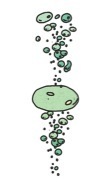 THE GREEK DEBT crisis, perhaps, with the Euro in perilous jeopardy? The deteriorating relationship between Pakistan and the West that threatens NATO’s mission in Afghanistan. Or, perhaps, Iran’s continued efforts to build a nuclear bomb?
THE GREEK DEBT crisis, perhaps, with the Euro in perilous jeopardy? The deteriorating relationship between Pakistan and the West that threatens NATO’s mission in Afghanistan. Or, perhaps, Iran’s continued efforts to build a nuclear bomb?
All of them seem pretty enormous, as stories go. But, to my mind, there is another story that broke to the surface this week that’s far, far, far bigger than all the others put together. In fact, this is the story that’s set to become the biggest story in the whole of human history.
In case you didn’t already know, gargantuan bubbles of deadly methane gas are bursting through the Arctic ocean and they threaten to engulf the whole world in a climactic apocalypse that even the most salacious tabloid newspaper couldn’t possibly over sensationalise.
And yet, apart from Richard Black, the environment correspondent of the BBC, few news outlets have given it much attention at all.
I guess that’s because few people, news editors included, have studied what I call Big History – most of us are hopeless at seeing the big picture. We were never taught that way. Our constant zooming in fragments knowledge in such a way that we mistake small parochial sagas as vitally important, while missing the giant stories that threaten our very survival.
Life on Earth has suffered at least five mass extinctions – dramatic episodes where a majority of species on earth have been wiped out in a relative short space of time. The third mass extinction, the worst of all, is thought to have annihilated as many as 96% of all species about 251 million years ago – at the boundary between what is known as the Permian and Triassic periods (so as to help your chronology, the dinosaurs first appeared about 20 million years later).
So profound was this event that even coal-making died out. There simply weren’t enough trees around to fall onto the ground and be buried in swamps to make deposits of coal. The coal gap – a 20 million year absence of coal in the rocks dating to between 250 and 230 million years ago, tells the tale of murder most foul – life’s closest ever brush with annihilation.
So what caused this ecological catastrophe?
Scientists are fairly sure they know. A relatively fast change in global temperatures (perhaps initiated by a super-volcanic eruption that spewed out gazillions of tons of global warming carbon dioxide into the atmosphere) triggered the release of frozen methane on the sea floor. As giant plumes of this greenhouse gas (ten times more warming than carbon dioxide) bubbled to the surface of the oceans a feedback loop kicked in, making the world hotter and hotter, leading to more and more methane release.
Worse was to come. When such quantities of methane mingled with the atmosphere, it reacted with the air’s freely available oxygen to produce carbon dioxide and water. As a result, oxygen levels 251 million years ago are thought to have plummeted to as low as 12% (instead of 21% today). So what rising sea levels, droughts and desertification couldn’t do to annihilate life, anoxic air-levels finished off.
Just look at these pictures.
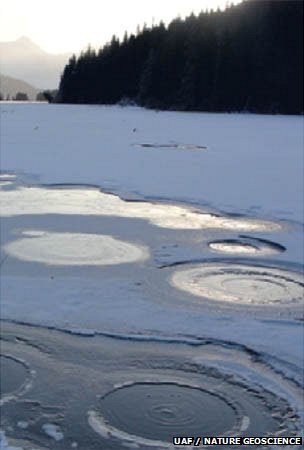 You can clearly see massive plumes of methane gas bursting through the Arctic Ocean, the repository of most of the world’s vast stores of frozen methane. According to this week’s journal Nature Geoscience, more than 150,000 methane plumes have so far been identified in an arc stretching from Alaska to Greenland.
You can clearly see massive plumes of methane gas bursting through the Arctic Ocean, the repository of most of the world’s vast stores of frozen methane. According to this week’s journal Nature Geoscience, more than 150,000 methane plumes have so far been identified in an arc stretching from Alaska to Greenland.
This is big news indeed. Look back in 50 years and I wage that Greece’s trifles with the Euro, Pakistan’s dalliance with the US and Iran’s bellicose ambitions will all have been long forgotten in a world in the grip of a massive ecological apocalypse with humanity, despite (or rather because of) its scientific libido, unable to turn back the clock.
April 21, 2012
Why boys won’t read…..
 BOYS are so-called ‘reluctant readers’. Ask most primary school teachers and they will confirm that, generally speaking, we have a problem when it comes to persuading the less fair sex to get stuck into a good book.
BOYS are so-called ‘reluctant readers’. Ask most primary school teachers and they will confirm that, generally speaking, we have a problem when it comes to persuading the less fair sex to get stuck into a good book.
Why should this be?
Are boys generally programmed to resist reading? In part I suspect so. Millions of years of gene flow have honed hunting instincts into the male line – the theory being that over the last 3 million years or so (since our apish ancestor adapted to walk on two feet) the most successful hunters will have fathered more children. So the instinct to get outdoors and play, fight or climb trees is expressed best through the male line. And charging around outside in a pack (playing football, for example) is far less conducive to sitting down with a good book. Conversely, the feminine ‘nesting’ instinct to feather the home would seem far more aligned to sitting down in one place and reading a good book. …So girls are instinctively better wired for learning to read.
Generalisaions, especially when it comes to gender, are dangerous goods these days. But zooming out to try to work out the connections between things necessitates a degree of generalisation for the sake of trying to paint big picture. It is no greater a crime, surely, than specialising so much that there is no big picture to be seen at all.
But the gender issue – particularly with regards to boys reluctance to read - seems to go a great deal further than evolutionary instinct, so I have recently begun to realize.
Last weekend I was fortunate enough to be asked to speak at The Federation of Children’s Books Groups Conference, at Bradfield College near Reading. It is an august organisation with a conference now in its twentieth year. The auditorium was packed with teachers, book lovers and educationalists (many from Norfolk for some reason, well, why not?)
The topic of literacy in young people is absolutely the bulls eye of discussion amongst such a group.
‘How wonderfully refreshing to have a non-fiction author speaking’ said one happy delegate after I had given my 60 minutes romp through the history of the world, with a giant Wallbook as a backdrop.
Surely stories about the real world are so much more amazing than any number of fantasies you can dream up in your mind
Why, I wondered, should ‘non fiction’ be such a big deal? Surely stories about the real world are so much more amazing than any number of fantasies you can dream up in your mind – as I try to demonstrate in my talks. If you love truly amazing stories then non-fiction’s the place for you….
At least that’s how it seems, if you’re a boy.
Facts, how things work, encyclopaedias, maps, books about nature, superheros from the past – this is the stuff that sets off fireworks in the minds of most boys. The tallest man, the bloodiest war, the biggest skyscraper….. these are incredible stories.
But I suspect (in fact I am sure) for girls, generally speaking, it is different. Fiction rules – fantastic non-real worlds are constructed for whatever reason – Escape? Romance? I don’t know. ….
Then, as I looked around the room, a penny dropped. Almost everyone there was female. The same is true whenever I visit a primary school – almost all the teachers are female.
So what type of books would these teachers generally encourage their pupils to pick up when they are being encouraged to read? The most natural choice would be to feed them whatever it is the teacher thinks is most appealing to a young mind – which, because they are female, will generally speaking be fiction no non-fiction! Hence the novelty of having a non-fiction author visit a school, or indeed give a talk at a conference on children books.
Now I am wondering if the problem with boys being reluctant readers isn’t so much nature but nurture. Perhaps it’s because they are being fed a diet of books chosen by females that are really inappropriate to the male psyche. If so, then hurrah! We really ought to be able to do something about it.
All views and comments most welcome – and, please, feel free to generalise…
April 16, 2012
Wallbook of Sport Set for Kick-Off
Come and Celebrate a GIANT launch for the Wallbook of Sport at City Hall, London on Monday 30th April!

A day packed with fun, talks, games and activities will be taking place for schools and families at a GIANTedition of the Wallbook of Sport that will be exhibited outside City Hall at More London onLondon’s South Bank from Friday April 27th to Sunday May 13th.

Click here for directions and map.
See hundreds of sporting moments reaching back thousands of years brought to life on our unique timeline of sporting achievements. On the back read all about the top moments from the revival of the Olympics in 1896 up to London 2012.
Talks by Wallbook author Christopher Lloyd, dressed in a multi-coloured coat of many pockets, will guide you through 3 million years of human history stopping off at 10 sensational moments that help explain the often perplexing question Why do People Play Sport?
The Wallbook of Sport talks and activities are suitable for all ages and are free to attend, but schools should book a place by calling 0203 318 1003 or emailing [email protected]
Talks will be held at:
9.30am, 11.30am and 1.30pm.
March 14, 2012
Mad dogs and Englishmen
“There’s nothing right in my left brain and there’s nothing left in my right brain…..”
STAYING as a guest in someone’s home is so much more uplifting than being accommodated in a soulless, modern hotel. This week I am away from home touring schools and giving talks at festivals. Yesterday it was my pleasure to be in Hereford, at the Cathedral School, where pupils from five nearby schools came to listen to the saga of life on earth over the last 4 billion years – X 4…..
Afterwards I was treated to a meal at my host’s house. Jayne is the school’s head of Science and her husband Andrew, the local vet. They live in a old-world cottage penned in by dry stone walls and surrounded by rolling fields. All rather idyllic.
Around the dinner table was a fascinating gathering of pupils, parents and teachers – about 16 in all. I sat opposite the headmaster – a kindly man called Paul, who seemed a little shy, but was sufficiently tall to compensate (is there a connection, perhaps? Shorter people have to be more feisty – taller ones more deferential?) His passion is nature – walking, canoeing, bird watching, butterfly spotting. We talked for a good long while.
To my right was Zofia, a lady with dark hair and Polish roots, who spends her days analysing brains using electrodes placed on people’s skulls to diagnose everything from epilepsy to variant CJD. I told her about my fascination with the neuroscience of learning and in particular about that wonderful book by Iain McGilchrist, my favourite from last year, The Divided Brain. (see this previous Wallbook Weekly)
She then rattled off that wonderful quote at the top of this post – apparently it’s on the poster board where she works. Instinct compelled me to reach out for pen and paper. What a great quip! Even better than the best Oscar Wilde, whose ‘I’m not young enough to know everything’ has now fallen into second place in my all time favourite quotes hall of fame.
When the party was over, Andrew and I were left in the living room. That morning he had put down a dog (my image of the week, from the What on Earth? Wallbook, panel 4). Nine times out of ten it’s a kindly thing to do, he told me.
It made me mad to think we are so squeamish about treating humans that humanely. A dog can’t communicate to us in as many words as if to say – kill me, I’ve had enough! Yet even though we humans can – we won’t do it!
Tsch! Sounds to me like a society whose collective cortex is suffering from so much hypocrisy and contradiction (internal bleeding) that its left and right hemispheres have become utterly dysfunctional – a civilisation with precious little right in its left brain and almost nothing left in its right.
Except for you, Zofia, of course…..! Thanks. You are very much appreciated.
February 27, 2012
Virolution
IT’S a stinky one. I must have become contaminated at least two weeks ago – these things usually take a few days to incubate – but by a week last Friday I was erupting all over the place – from the snotty nose and spluttering cough to an unnerving shiver that got worse at night-time. It wasn’t so bad as to make me retire to bed, but it was bad enough for everything last week to become something of a struggle.
Happily, I am recovering now – but the cough keeps tickling. I soldiered through the week – the climax was a day at a Secondary School in Haringey on Monday – With four hours of talks, thank the Lord for microphones. Whoever invented them (I must find out….anyone know?) did me a massive favour. Without one on that day I would surely have been reduced to the human equivalent of an error page 404.
Viruses – the causes of a common cold – are bizarrely discriminated against when it comes to interpreting the past. Their story hardly, if ever, features in history books. Biology books aren’t much better either. One of the most surprising (and rewarding) themes to emerge when I was researching the study of 100 species that changed the world (see What on Earth Evolved?, Bloomsbury 2009) was discovering the extraordinary influence viruses have had on the evolution of life on earth.
Their hallmarks can be found on everything from the cohabitation of humans and domestic cats to our penchant for a glass of fresh orange juice each morning and from the relative ease with which seventeenth century European conquistadors took over the Americas to that woman over there on the far side of the train carriage I am travelling in, the one who is brushing her face with blusher. All of them can be explained through the story of the virus.
Viruses are endlessly fascinating – invisible, microscopic, rogue strings of genetic code that are able to transform the most powerful animal to a mad, gibbering wreck. A rabid dog is driven bonkers by biting so that the virus it carries can be spread from one living thing to another through the animal’s saliva. Cholera so liquefies our bowels that its spread is all but guarantied anywhere with less than impeccable hygiene. Everything viral - from my very own sneezes and coughs to the oozing puss of a pox – is ingeniously designed to alter the beahvour of other living things in a bid to maximise the chances that these invisible menaces will successfully hop from host to host.
The most extraordinary family of all are the retroviruses – like HIV AIDS. So pernicious are these beasties that they actually splice themselves inside our genes – taking permanent residence in our DNA – so they can be passed automatically, like stowaways, from one generation to the next, achieving that most elusive objective – so often sought by human tyrants – of biological immortality. A vast proportion of the human genome – much of what is called JUNK DNA – is now known to be the relics of ancient retroviral infections that have accumulated over hundreds of millions of years.
The mind boggles.
That means that inside every one of our cells is a ‘doomsday’ book-like-document – our DNA – that can potentially reveal the incredible history of how tiny viruses have disrupted the trajectory of evolution for billions of years. Retrorviral infection is now thought to explain how human ancestors lost their sense of smell – resorting instead to having to make mating judgements based on visual symmetry rather than a sniffing pheromones (hence the lady’s blusher) – and why humans, unlike other mammals, are unable to synthesise their own vitamin C (hence the need for drinking citrus juice as a vitamin supplement in the mornings).
Cats are obligate carnivores – apparently having lost their sense of sweetness owing to an ancient viral infection – making them the perfect companions for early farmers – protecting grain supplies (of no interest as food for a cat) from vermin (which love the grain to bits).
A vast proportion of the human genome – much of what is called JUNK DNA – is now known to be the relics of ancient retroviral infections that have accumulated over hundreds of millions of years.
Smallpox – the most devastating viral infection in human history – is not a retrovirus, but its power to decimate populations was once so enormous that when the disease spread to the Americas approximately 20 million natives died within 100 years of Columbus’ arrival…. The lack of an effective indigenous opposition explains why it was relatively easy for Europeans to make the New World their new home. But what was to be done about finding labourers to work in the mines and on the plantations when most of the locals had died? The African slave trade – and all that flowed from it – also has its causal roots in viral infection.
Remember those smoke particles in the Brownian Motion experiment most of us did in Chemistry at school? I am not sure if it still done these days…. If not in chemistry then it should be made compulsory in history classes since I know of no more powerful metaphor for understanding the past. We think, because the consequences of our many of our actions are so often visible, that we are in control – zipping about in our industrious ways here and there, like the particles of smoke in the chamber. But no – the reality is that we are being pushed about by invisible forces – chaotic, irrational, unpredictable, far from predetermined.
And the closer you look, the more viral such forces tend to be – not much different from that thread of mutant genetic code that caused my cold…
January 28, 2012
Onward Christian Soldiers….
 I HAVE ALWAYS had a great deal of respect for the Archbishop of York, John Sentamu. I recall him giving up his summer holiday – in August 2006 – to set up camp inside his own cathedral in a protest against violence in the Middle East, following Israeli intervention in Lebanon.
I HAVE ALWAYS had a great deal of respect for the Archbishop of York, John Sentamu. I recall him giving up his summer holiday – in August 2006 – to set up camp inside his own cathedral in a protest against violence in the Middle East, following Israeli intervention in Lebanon.
He is a man of peace, there is no doubt. But not, it seems, a man of history. Today’s newspaper quotes him as saying that the idea of politicians legalising gay marriage is an utterly absurd abuse of its role:
“It’s almost like someone telling you that the Church, whose job it is to worship God, will be an arm of the armed forces. They must take arms and fight. You are completely changing tradition.”
It’s not his point about the state that bothers me, not his views on gay marriage – it’s the irony of his comparison with the church and the armed forces that gets my goat because, if you take a big perspective on the past, then I believe it’s hard to deny that the church has been one of the most persistently loyal arms of the western military tradition for at least the last 1,000 years!
OK – so the obvious example is the crusades – hence my image of the week, a crusader’s shield taken from panel 6 of the What on Earth? Wallbook. The various forays by Christian forces, under instructions from the God’s divine messenger, the Pope, to invade Jerusalem and save it from the infidel, have had extraordinary consequences that reverberate as much today as they did nearly 1,000 years ago when the papal battle cry first rang out.
The establishment of modern Israel is extraordinarily analogous to the creation of the Kingdom of Jerusalem established by the first crusaders just over 1,000 years ago. The tug of war between Muslim and the Judeo-Christian faiths continues today – one recent episode being the very invasion of Lebanon a few years ago, one so upsetting to Sentamu that he took to his tent.
Probably the most horrific crimes committed in the name of Christ and his Church occurred in 1204 when crusaders sacked the Christian city of Constantinople. Nowhere in all my research for What on Earth Happened? did I read about such an orgy of killing and pillage as in the accounts of what these soldiers did in the name of Christ, under the protection of his Church.
Probably the most horrific crimes committed in the name of Christ and his Church occurred in 1204 when crusaders sacked the Christian city of Constantinople.
Of course, all that was a long, long time ago. But it’s hard to escape the recurring theme – it happens time and time again – of how evangelical Christians have a habit of following the military frontlines of their states, engaging in the process of westernizing indigenous cultures and saving souls. From the Jesuits in 17th century South America to the Anglican missionaries in 19th century Taiping China – and more recently in the 20th century with the stolen generation of children by Christian settlers in Australia. In each case the church has acted, like it or not, much like an arm of the military, with what seems like a spiritual equivalent of ethnic cleansing - it sends shivers down my spine as I write….
We could just say – forget it – what’s the point of dwelling on the past? Surely looking forward is what counts. But like Confucius’ dictum from last time – study the past as you would define the future – it’s often really hard to move forwards without a genuine historical understanding and empathy with those many other cultures we engage with on a global, daily basis today – be it in trade or business, peace or war.
So Sentamu’s attempts to make the link between the Church and the military sound ridiculous aren’t just ironic, they also reflect a deep Christian cultural trait which, to my mind, not only detaches us from the reality of our past but is also major impediment to us being agents of peace in the future.

